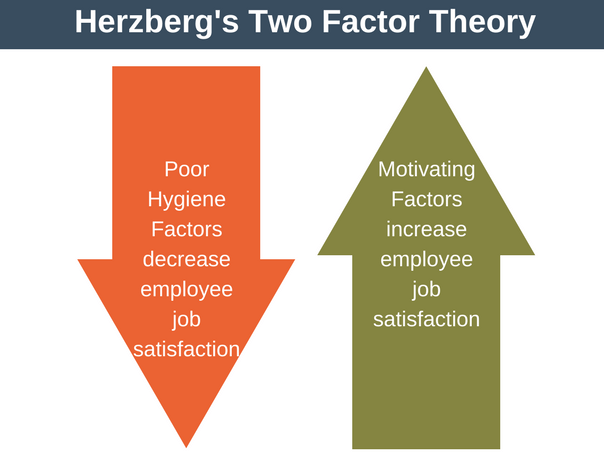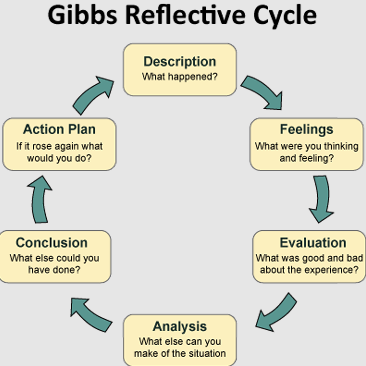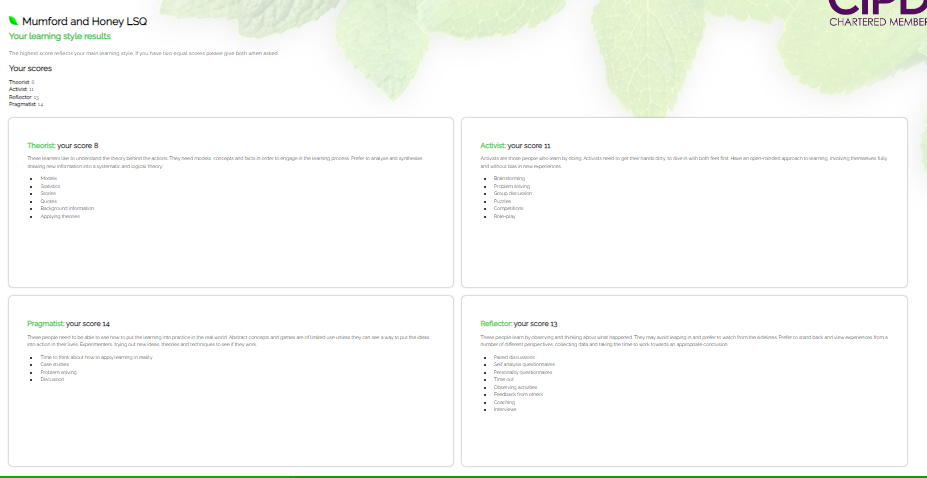MBA7062 Developing People for Leadership and Management Exam Sample
Assignment Title And Name : MBA7062 Developing People for Leadership and Management Exam Sample
Critical discussion on nature, scope and effectiveness of performance and reward management system associated with LMD
Introduction
Performance and reward management has become a major responsibility of the management team, of every organization. Performance management is considered a continuous process of communication between an employee and a supervisor. This process performs throughout the year in order to accomplish the strategic objective of an organization.
On the other hand, the reward management system is generally used in the implementation process of strategies that can help to give rewards to every employee in the organization. When all of the deserving employees get rewarded by the company this boosts their performances. Along with that, the LMD stands for the Local Management Device within an organization.
The LMD programs help an organization in establishing more focus on values and vision. It also helps in the process of successful implementation of big changes and strategic issues. This report is going to be focused on the nature, scope and effectiveness of performance and reward management systems in regard to LMD. This report is also going to spread light on how these factors can enhance the performance of an organization. Along with that, this report is also going to provide a reflection on personal development planning through reflective analysis of my current capabilities.
Discussion on nature of performance and reward management system in regard to LMD
There are a total of two aspects within an organization that can help in measuring and enhancing the performance of employees such as the performance and reward management system. As per the comments of Ameen et al. (2018), performance management of any organization can refer to the process of clear communication between an employee and a supervisor.
This process needs to continue throughout the year in order to accomplish all of the strategic objectives of an organization. As per the statements of Mashala (2018), on the other hand, the second important aspect of an organization is the reward management system. This is basically the implementation of strategies that helps an organization provide a reward to all of the deserving employees. LMD programs help an organization in focusing more on its vision and value of it. It also helps in implementing the new changes into the organization so that it can enhance the performance of the employees.
Performance of reward management is a much more complicated and broader function of HR in regard to LMD in an organization (Kinyanjui and Wambua, 2020). Various types of activities are there in it such as continuous review of progress, frequent communication and joint goal setting. The nature of the performance and reward management system helps an organization to continuously review the progress of employees while having continuous communication (Aguinis, 2019). The nature of performance and reward management suggests an organization provide coaching and feedback to improve performance.
Evaluation of scope of performance and reward management system in regard to LMD
The main scope of establishing the performance and reward management system is to manage the organization. As per the concept of Grossi et al. (2019), all types of formal and informal procedures and measures that are adopted by an organization for increasing individual effectiveness are encompassed in the scope of this. This is considered a natural process that has the ability to manage the organization and this is not a technique or system. Another thing that needs to be kept in mind is that this needs to be managed within the exact context (Cepiku, 2020).
A scope that an organization can desire is that this management process will supervise employee performances. There is a misconception that only managers are responsible for the performance of a team, however, this is not true. The performances of both managers and employees are equally responsible for the progress of an organization (Audenaert et al. 2019).
 Figure 1: Herzberg’s two-factor theory (Source: Akpan, 2019)
Figure 1: Herzberg’s two-factor theory (Source: Akpan, 2019)
The process of performance and reward management system is mainly focused on the better implementation of new strategies that can enhance the performance of the employees. In addition, the scope of this management system always focuses on managing employee performance by providing feedback (Sistani and Vasegh, 2020).
Organizations need to take a specific reward strategy incorporating LMD so that it can enhance employee performance. Organizations need to check the performance of employees and on the basis of performance; employees need to be rewarded with a specific amount (Vignieri, 2019). Herzberg’s two-factor theory states that there are certain indicators and factors that cause job satisfaction. Therefore, every organization needs to focus on rewarding employees to increase engagement and performance by satisfying them.
Critical discussion of effectiveness of performance and reward management system in regard to LMD
The effectiveness of performance and reward management helps an organization achieve the desired goal. As per the comments of Richards et al. (2019), the effectiveness of the reward and performance management system ensures that the goals of the team and individual are aligned with organizational goals. As per the statements of Pambreni et al. (2019), this process of management helps in enhancing the performance of both the team and individual by implementing LMD. As per the opinions of Richards (2019), every organization needs to check that the goal of an individual and a team are aligned with the goal of the organization or not. Therefore, it is really important to enhance the performance of the organization.
As per the comments of Ateh et al. (2019), an organization will be successful in achieving the desired outcome only if both individual employees and teams perform to achieve the same goal. On the other hand, it is also important that organizations always check the performance of employees. In this regard, performance and reward management systems help in tracking individuals (Beck et al. 2021).
An organization can be able to improve employee performance by rewarding them. When an organization will be able to implement an effective performance and reward management system in regard to LMD will going to have the best outcomes. Since performance management is one of the main factors that can increase the progress of an organization.
Conclusion
After all of the above discussion, it can be stated that performance and reward management is an important aspect that an organization needs to pursue. Every organization needs to learn how to manage the performance of employees. In order to manage the performance of the employees, an organization must implement new strategies that can always enhance performance of employees. One of the popular strategies to manage the employee performance is the reward system.
In a reward system, an organization has to track and supervise the performances of every individual to understand where the need for improvement is. While doing that process organizations will be able to understand the performance of employees who really deserve to have the reward.
Those employees who are really doing well in their responsibility need to be rewarded by the organization. This strategy would definitely help that organization to manage performance by enhancing employee performance. All of the procedures must be done in regard to the LMD within the organization. As per the concept of the above-mentioned theory, every organization must focus on the satisfaction of employees. An organization will be successful in fulfilling the satisfaction of employees by rewarding them on the basis of their performance.
Section 2: Critical Reflection
Description
In this section, I am allowed to carry out personal development planning through reflective analysis of my current capabilities. In this section, I am allowed to analyse the skills, knowledge and experiences I need to develop or enhance while setting a benchmark against leadership competencies.
For analysing all of the skills that I have to improve as a leader, I have given an exam on Mumford and Honey LSQ. With the help of the provided result, I am now able to analyse my skills and knowledge that need to be improved. There are several skills that need to be there in a leader so that the leader can be able to lead an organization properly.
Feelings
After viewing the provided result by Mumford and Honey LSQ, I have become able to analyse my skills as a leader. As per the comments of Sumardi and Fernandes (2020), a leader always needs to have the qualities of an activist so that the leader can be able solve any type of difficult situation. In this section, I have got 11 which indicates that I have certain skills and knowledge of activists [refer to appendix].
I am really satisfied that I have the skills of brainstorming and problem-solving. I have the capability to solve any kind of issue easily since I have the ability to brainstorm. A leader needs to have the quality of having a group discussion before taking any kind of decision (Sumardi and Fernandes, 2018). I have also this skill and knowledge of giving priority to others’ opinions before putting my decision forward.
Evaluation
In every experience there has to be something that is not up to the mark, in this case, I have to mention a few skills that I need to improve. Along with that a leader needs to believe in action more than theories so that the leader can be able to take the right decision (Mone and London, 2018).
However, I am more into theories rather than actions which I have to improve for my personal development. I got 8 in the section of theorist which represents that I need to improve this side within myself [refer to appendix]. I always prefer the theories and models to engage in the learning process which has to be changed.
 Figure 2: Phases of Gibbs reflective Cycle (Source: Cho et al. 2020)
Figure 2: Phases of Gibbs reflective Cycle (Source: Cho et al. 2020)
Analysis
I have the skill of viewing similar case studies as it helps me to make the right decision in order to achieve the goal. I always try to go through similar case studies as it provides me with more options that make me satisfied with my taken decision. As per the comments of Lewis et al. (2020), a leader always needs to go through similar case studies since it provides the experience for the leader to analyse the whole situation.
I have got 14 in this section of having the knowledge of case studies and problem-solving [refer to appendix]. As per the provided result, I have the habit of observing others’ activities and taking experience from those incidents. In most cases, I face the problem of being puzzled since I get puzzled in several situations in which I have to improve. I always try to give space to others so that other members can be able to put their opinions as well.
Conclusion
It can be coned that I have few leadership skills that are required for effective leadership. However, I have also several skills that need to be changed. As per the given result of Mumford and Honey LSQ I have to improve my habit of preferring models and theories over actions.
I have to concentrate on the action more than on theories. Another skill of mine that has to be improved is the implementation of proper theories under the right circumstances. As per the statement of Borgonovi et al. (2019), a leader must know the right implementation of theories in the right situation. Apart from that, I have certain good qualities also such as being able to solve difficult situations and also being able to give space to others.
Action plan
As I have both positive skills and knowledge and also such skills that need to be changed, therefore, few actions need to be taken. In the future, I need to be more careful while making a decision so that I could be able to take the decision. Along with that, I need to focus more on the action rather than theories and models. I have to tackle the tough situation insufficient way so that I would not get puzzled easily. I must evaluate the advantages and disadvantages of alternatives so that I can make the right decision.
Reference list
Aguinis, H., 2019. Performance management for dummies. New Jersey: John Wiley & Sons.
Ameen, A.M., Ahmed, M.F. and Abd Hafez, M.A., 2018. The impact of management accounting and how it can be implemented into the organizational culture. Dutch Journal of Finance and Management, 2(1), p.02.
Ateh, M.Y., Prasojo, E. and Huseini, M., 2019, November. The Impact of Performance Management Implementation on Effectiveness and Efficiency of Government Budget Use: Indonesian case. In Eastern Regional Organization for Public Administration Conference (EROPA 2018) (pp. 55-64). Atlantis Press.
Audenaert, M., Decramer, A., George, B., Verschuere, B. and Van Waeyenberg, T., 2019. When employee performance management affects individual innovation in public organizations: The role of consistency and LMX. The International Journal of Human Resource Management, 30(5), pp.815-834.
Beck, V., Brewis, J. and Davies, A., 2021. Women’s experiences of menopause at work and performance management. Organization, 28(3), pp.510-520.
Borgonovi, E., Bianchi, C. and Rivenbark, W.C., 2019. Pursuing community resilience through outcome-based public policies: Challenges and opportunities for the design of performance management systems. Public Organization Review, 19(2), pp.153-158.
Cepiku, D., 2020. Performance management in a networked organization: the OECD. International Journal of Public Sector Management.
Cho, M., Her, D. and Eom, Y.H., 2020. The impact of performance information use and decision making on organization performance. Journal of Convergence for Information Technology, 10(4), pp.55-64.
Grossi, G., Kallio, K.M., Sargiacomo, M. and Skoog, M., 2019. Accounting, performance management systems and accountability changes in knowledge-intensive public organizations: a literature review and research agenda. Accounting, Auditing & Accountability Journal.
Kinyanjui, H.W. and Wambua, P.P., 2020. Performance management practices, organization structure and service delivery. Journal of Human Resource and Leadership, 5(1), pp.1-14.
Kyeremeh, E. and Dza, M., 2018. Supply Chain Management and Organization Performance: A Value Creation Perspective. Archives of Business Research, 6(10).
Lewis, M., Lambert, W., Spinks, M., Blackwelder, G., Lund, S., Vessey, R., Bush, A., Marler, S., Wight, R., Donaldson, G.S. and McGill, G., 2020. Leading Practices in Modifying Agency Organization and Management to Accommodate Changing Transportation System Technologies (No. NCHRP Project 20 68A, Scan 18-02).
Mashala, Y.L., 2018. Green human resource management and environmental sustainability in Tanzania: A review and research agenda. International Journal of Academic Multidisciplinary Research, 2(12), pp.60-68.
Mone, E.M. and London, M., 2018. Employee engagement through effective performance management: A practical guide for managers. Routledge.
Pambreni, Y., Khatibi, A., Azam, S. and Tham, J.J.M.S.L., 2019. The influence of total quality management toward organization performance. Management Science Letters, 9(9), pp.1397-1406.
Richards, G., Yeoh, W., Chong, A.Y.L. and Popovič, A., 2019. Business intelligence effectiveness and corporate performance management: an empirical analysis. Journal of Computer Information Systems, 59(2), pp.188-196.
Sistani, S.M. and Vasegh, M., 2020. Investigating the Effect of Professional Ethics on the Performance Management of the Official Staff of the Central Organization of Mashhad University of Medical Sciences in 1399.
Sumardi, S. and Fernandes, A.A.R., 2020. The influence of quality management on organization performance: service quality and product characteristics as a medium. Property Management.
Vignieri, V., 2019. Framing the sources of image of a local area through outcome-based dynamic performance management. Public Organization Review, 19(2), pp.249-271.
Appendix: My score in Mumford and Honey LSQ (Source: https://www.mint-hr.com/results.html)
(Source: https://www.mint-hr.com/results.html)
Know more about UniqueSubmission’s other writing services:

